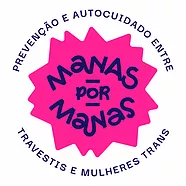Manas por Manas

Globally, trans women experience extreme social and economic marginalization due to intersectional stigma, defined as the confluence of stigma that results from the intersection of social identities and positions among those who are multiply oppressed. Among trans women, gender-based stigma intersects with social positions such as engagement in sex work and substance use, as well as race-based stigma to generate a social context of vulnerability and increased risk of HIV acquisition. In Brazil, trans women are the ‘most-at-risk’ group for HIV, with 55 times higher estimated odds of HIV infection than the general population; further, uptake of HIV testing and pre-exposure prophylaxis (PrEP) among trans women is significantly lower than other at-risk groups, despite availability in the public sector and documented interest in the community.
Through extensive formative work, we have developed a multi-level intervention utilizing HIV prevention strategies which have demonstrated feasibility and acceptability by trans women in Brazil, to address intersectional stigma and increase engagement of trans women in the HIV prevention continuum. In this project, we will test ‘Guerreiras’ (‘warrior women’, as named by trans women participants in Brazil), comprised of two intervention components designed to address intersectional stigma:
- a group-level, peer-led intervention and
- an individual-level peer navigation program to increase uptake of HIV testing and PrEP.
Guerreiras is informed by a trans-specific conceptual model, gender affirmation theory, that describes intersectional stigma faced by trans women, informs investigations of how intersectional stigma results in health disparities, and provides a framework for intervention development and testing.
Project Team
- Principal Investigators: Jae Sevelius, PhD; Sheri Lippman, PhD
- Project Director: Gustavo Saggese, PhD
